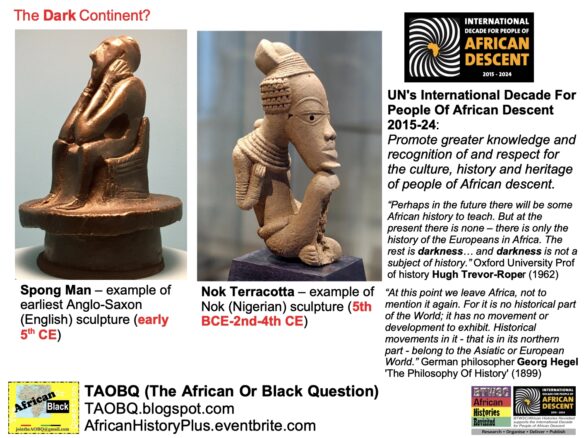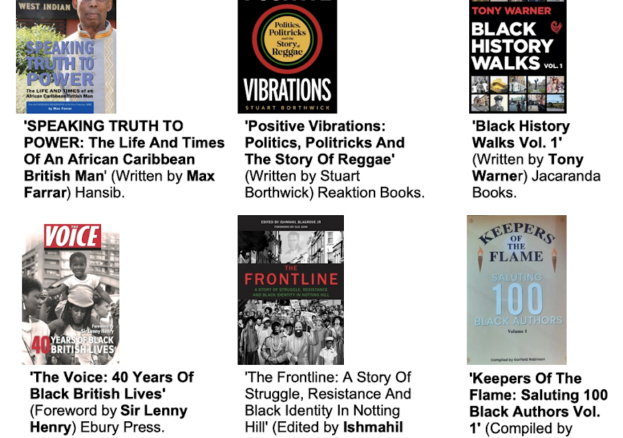
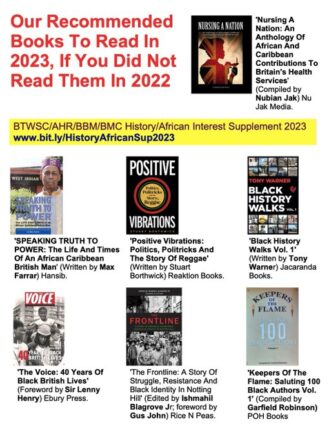
It’s Still February – Recommended Books To Improve Your British African History Knowledge
Kwaku
Whilst African History Month may be marked in October in the UK, as most countries mark it in February, this month offers us another opportunity to improve our British African history knowledge. Below are six recently published books to check out.
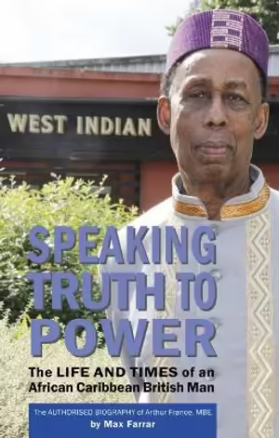
Coverage of British African history tends to be London-centric. So I’m glad to see Max Farrar has written a biography, ‘Speaking Truth To Power: The Life And Times Of An African Caribbean British Man’ (Hansib Publications), which is about Arthur France, who arrived in Leeds from Nevis in 1957.
France needs to be better known, and this book is a commendable start in framing France not only as a pan-Africanist, anti-racist and community leader, but also part of the group that started an African-Caribbean street carnival in Leeds in 1967, which predates Notting Hill Carnival as a Caribbean street carnival – the London event did not start as an African Caribbean affair.
An accessible read with photos, references, and a “small island” big-up in the form of an appendix entitled ‘Nevis And St Kitts: A History Of Rebellion’. Click here for more info.
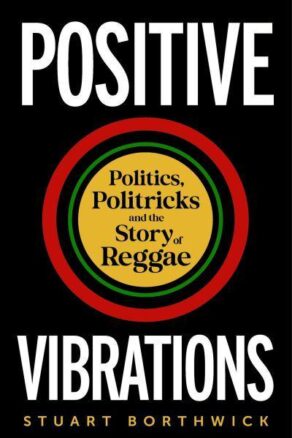
If you are waiting for Sebastian Clarke, now known as Amon Saba Saakana, to bring out the update to his 1980-published ‘Jah Music’, then you need to check out Stuart Bortwick’s book. Reggae music is more than music. There are several layers, not least the historical and political, which ‘Positive Vibrations: Politics, Politrics And The Story Of Reggae’ (Reaktion Books) covers over centuries and across Africa, the Caribbean and UK.
Chapter headings such as ‘Look To Africa: The Politics Of The Rastafari’, ‘Better Must Come: Roots Reggae And The Politics Of Jamaica In The 1970s’, ‘Inglan Is A Bitch: Reggae Crossover In The UK’ and ‘Yuh Nuh Ready Fi Dis Yet: Women And The Politics Of Dancehall And Reggae, 1990-2010’, give an indication of the breadth of coverage. There are a few photos, and ample references for further investigations.
I particularly like the coverage of issues around VP’s purchase of Greensleeves, copyright and ownership, and the outernational coverage of Bobi Wine of Uganda, and Cape Coast Castle. Deep, yet accessible. Click here for more info.
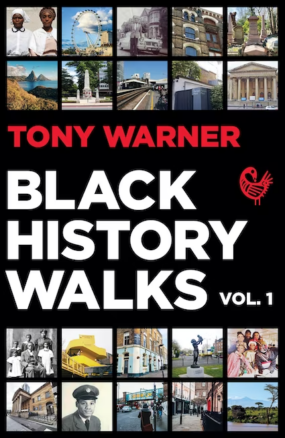
If there’s one book I had been looking forward to, that’s Tony Warner’s ‘Black History Walks Vol. 1’ (Jacaranda Books), which was initially supposed to come out in 2020, as one of 20 books by British African authors in the year the Covid-19 pandemic struck.
Warner is a community historian, who in addition to delivering in lecture halls and community centres, organises film screenings, walks, bus tours and river cruises, that highlight buildings and artefacts that speak to London’s African history.
This 450-plus page book is lavishly illustrated with colour photos. It starts with an African monument that predates by a millennium the founding of London. In addition to highlighting mainly south London-centred histories, it covers the African contributions to the World Wars, and has a useful 1945-2020 US-UK social history timeline. Click here for more info.
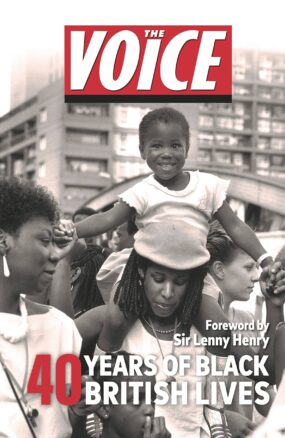
Launched as a weekly in 1982, The Voice newspaper has a veritable archive to draw upon. ‘The Voice: 40 Years Of Black British Lives’ (Ebury Press) has the paper’s former editors and some current journalists covering a chapter each. Sir Lenny Henry provides a revealing foreword, which includes how he became the media and entertainment industries’ diversity advocate. It’s illustrated with reproduced pages from the paper.
Richard Adeshiyan’s 1982-1992 decade provides a potted biography of the paper’s founder Val McCalla, and covers the injustice the African communities experienced under the Thatcher government: disproportionate high levels of unemployment, brutal (mis-)application of the Sus law by the police, racism or Afriphobia, deaths caused by racists or under custody of statutory bodies, and equal opportunity job ads by mainly left-leaning councils.
Sadly, apart from the last point, nothing much has changed, as evidenced in the 2013-2022 decade coverage, where the power of social media to amplify these injustices and struggles is recognised. Over the decades, we’ve had numerous talks, inquiries, and interventions regarding racism and equality. Whatever the outcomes, The Voice has been there to cover it. Click here for more info.
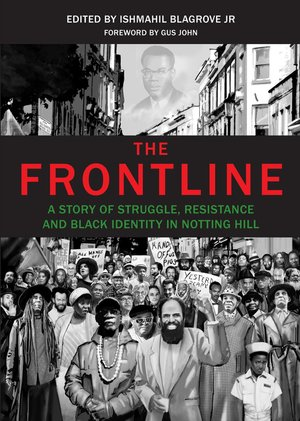
One can understand why ‘The Frontline: The Story Of Struggle, Resistance And Black Identity In Notting Hill’ (Rice N Peas) is a 800-plus page tome. Although some of the recollections are historically incorrect or contradictory, Ishmahil Blagrove Jr has nevertheless managed to put together a composite, where many less well-known voices and stories from 150-plus contributors, enrich the social history of not just of Notting Hill/Ladbroke Grove, but also cover how some of the players impacted in other parts of London.
Musician turned actor Ram John Holder provides an on-point oppositional view to the prevalent Empire Windrush and Notting Hill Carnival narratives. Continental Africans, often marginalised in these narratives, are mentioned whether in passing as landlords, lawyers or providing African drumming at the beginning of the Carnival, whilst my Ghanaian compatriot Herbert Bukari is not only acknowledged for his work with the Carnival Arts Committee, but also gets a sub-chapter dedicated to his youth sports development.
A worthy encapsulation of the area’s deep history of uprisings, resistance, and celebration, not least as evidenced in the annual Carnival. Click here for more info.
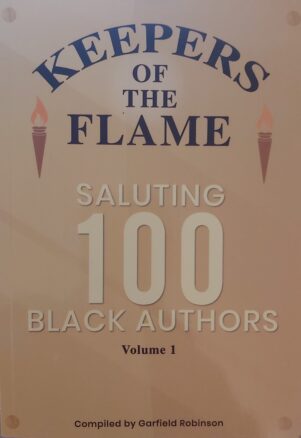
After spending some twenty years selling African Caribbean books and cultural artefacts, Garfield Robinson has turned compiler and publisher of ‘Keepers Of The Flame: Saluting 100 Black Authors Vol. 1’ (POH Books). It profiles 100 British African writers, whose outputs cover various genres. Alexander D Great for example uses the calypso idiom. Whilst Tayo Fatunla uses the comics format.
Each writer is represented by a stylised image, three adjectives that describe them, and a potted history of their literary endeavours and publications.
A few of the names, such as Sonia Brown, Kandace N Chimbiri, Wilfred Emmanuel-Jones, Tony Fairweather, Rasheda Ashanti Malcolm, Levi Roots, Tony Sewell and Nairobi Thompson, have recognition. However, the value of this book must be seen in its highlighting of the many less well-known writers.
And remember, as Robinson says, paraphrasing an African proverb: “Until lions WRITE their stories, the hunter will always glorify himself.” Click here for more info.
Two extras:
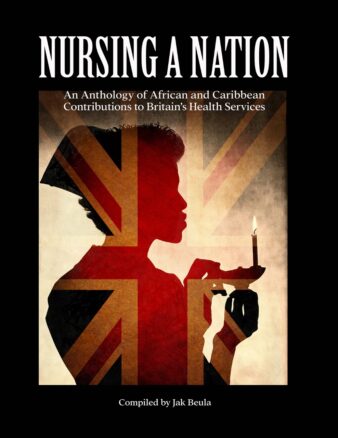
‘Nursing A Nation; An anthology Of African And Caribbean Contributions To Britain’s Health Services’ (Nu Jak Media) compiled by Nubian Jak. A comprehensive coverage, with many personal histories. Click here to buy.
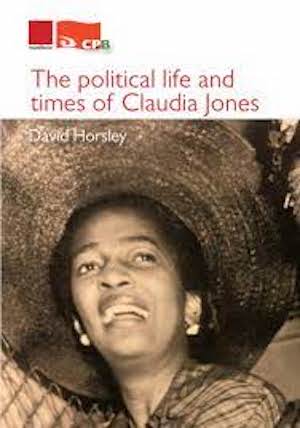
‘The Political Life And Times Of Claudia Jones’ (Manifesto Press) written by David Horsley. Useful coverage of the indefatigable activist’s life. Click here to buy.
Kwaku
TAOBQ (The African Or Black Question)/BTWSC/African Histories Revisited
